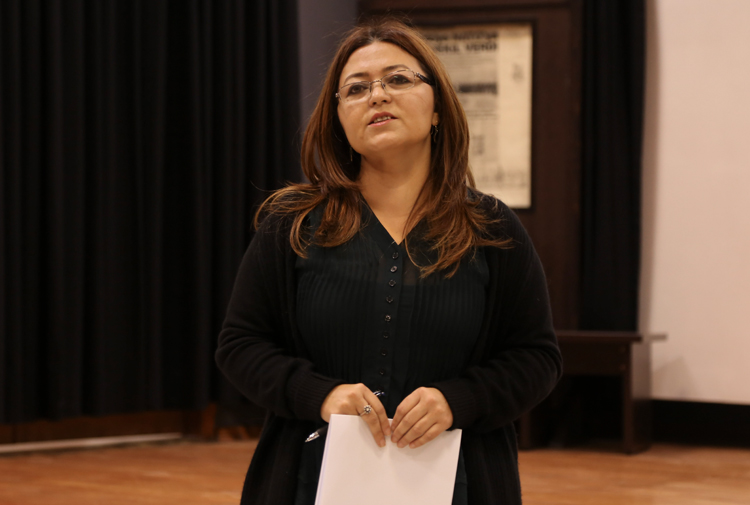
[authorbox authorid=”86″ title=”The Author”]
Despite ongoing tensions between Turkey and its Western allies, the German President Frank-Walter Steinmeier invited his Turkish counterpart Recep Tayyip Erdogan for a state visit in late September. The success of this meeting will depend on Europe’s willingness to defend its core values. Only a principled approach, that makes cooperation with Turkey conditional on Turkey’s return to democracy and the rule of law, will allow Europe to deal with Turkey from a position of strength.
Turkey’s ongoing descent into authoritarianism was accompanied by a steady deterioration of relations with its Western allies. Tensions with the United States began over American support of Kurdish groups in the fight against ISIS and their refusal to extradite the cleric and educational leader Fethullah Gülen to Turkey without due process. These frictions spiked over the arrest of the American pastor Andrew Brunson in Turkey for alleged links to the Gülen Movement[1].
Similar tensions have also arisen between Turkey and its European allies, most notably Germany. After the German government placed restrictions on Erdogan’s political rallies relating to the 2017 Turkish constitutional referendum in Germany, Erdogan accused Merkel of employing “Nazi practices”[2].
Subsequently, a number of German journalists, citizens and activists were arrested in Turkey for ties to allegedly subversive groups and “terrorist organisations”[3]. Germany and other European nations view these charges as trumped up and politically motivated[4].
Despite the current tensions, it is a tradition among some German Social Democrats to prioritise strong ties with the Republic of Turkey. The former chancellor Gerhard Schröder is known, amongst other things, for his excellent relations with the autocrats Erdogan and Vladimir Putin[5].
Schröder is said to have mediated between Germany and Turkey to secure the release of the German journalist Deniz Yücel and the human rights activist Peter Steudtner, as well as representing the current German government at Erdogan’s-Presidential inauguration this year[6].
Now Steinmeier, Schröder’s former protégée[7], has sought to restart Germany’s relationship with Turkey by inviting Erdogan to Germany for a state visit at the end of September[8].
—
The proposed meeting between the two presidents has caused considerable controversy inside Germany, including about the ceremonial honours that this type of visit would customarily confer on the visiting president. More importantly, several opposition politicians are concerned that the state visit provides legitimacy to a president, who systematically undermined democracy in Turkey and has perpetrated severe human rights violations against his own citizens[9].
Defenders of the invitation stress the strategic significance of Turkey as a member of NATO and partner in addressing the, so called “refugee crisis”. This line of argumentation suggests that cooperation with Turkey, in a time when it faces significant economic hardship, can pave the way for repairing a long-standing, albeit severely strained, partnership as well as bringing about the release of Erdogan’s remaining German prisoners.
However, such arguments are punctured by several of Erdogan’s recent policies and pronouncements. Despite formally remaining within NATO, Turkey has denied German politicians access to their own troops at the Incirlik airbase, forcing them to relocate to Jordan[10]. Erdogan has worked with Russia and Iran in negations about the Syrian war that explicitly exclude Western powers[11] and has turned to Putin for cooperation with respect to both military procurement[12] and trade[13].
It is thus highly unlikely that Turkey would be a credible ally for its NATO partners in any confrontation with Russia. Engagement with Turkey over refugees did not prevent Erdogan from meddling in German domestic affairs, particularly by telling the Turkish diaspora not to vote for Germany’s Christian Democrats (whom he labelled ‘enemies of Turkey’) in last years’ general election[14]. Moreover, no democratic country should allow itself to be held ransom over the resolution of an international challenge, such as increases in irregular migration.
Thus, unconditional exchanges with the Turkish president would be misguided. Germany cannot limit its normative engagement with Turkey to securing the release of imprisoned German journalists and human rights activists. Even after the widely covered release of Deniz Yücel, Turkey remains one of the world’s largest jailers of journalists[15].
Following purges of the judiciary, military, police, and bureaucracy, opponents of Erdogan (be they Kurds, seculars, feminists, journalists or supporters of Gülen) remain at the mercy of an arbitrary system that denies them their legal rights as well as any semblance of due process[16]. If arbitrary detention is not acceptable for Germans arrested in Turkey, neither should it be acceptable for anyone else.
That is not to say that German aid for Turkey is itself mistaken. As with most catastrophes, the primary victims of Turkey’s recent economic collapse are the ordinary citizens of the country. Yet, if the European Union and its member states want to remain true to their shared commitments to democracy, the rule of law and human rights (however strained their implementation may be in practice), it cannot decouple cooperation with- or economic assistance to Turkey from Turkey’s return to safeguarding these norms.
It is time for European politicians to recognise that the principled approach advocated in this article is indeed possible. Earlier this year, a paper by Gallia Lindenstrauss at the Institute for National Security Studies and myself suggested that the EU could leverage Turkey’s membership of the Customs Union in order to link economic cooperation with normative values[17]. Given the dire state of both Turkey’s human rights record and its economy, this prescription remains as true as ever.
[1] https://www.theguardian.com/world/2018/aug/14/andrew-brunson-turkey-the-us-pastor-at-the-heart-of-an-international-crisis
[2] https://www.theguardian.com/world/2017/mar/05/erdogan-accuses-germany-of-nazi-practices-over-blocked-election-rallies
[3] https://www.al-monitor.com/pulse/originals/2018/02/turkey-erdogan-jailing-journalists-policy-lucrative-results.html
[4] https://www.telegraph.co.uk/news/2017/03/02/merkel-demands-turkey-release-arrested-german-journalist-amid/
[5] https://www.focus.de/politik/ausland/haendeschuetteln-mit-erdogan-und-putin-viele-nehmen-altkanzler-schroeder-autokraten-kontakte-uebel-doch-sie-sind-wichtig_id_9235415.html
[6] https://www.merkur.de/politik/gerhard-schroeder-als-besonderer-freund-erdogans-bei-vereidigung-zr-10018116.html
[7] http://www.spiegel.de/politik/deutschland/frank-walter-steinmeier-bundespraesidenten-kandidat-im-steckbrief-a-1121171.html
[8] https://www.reuters.com/article/us-germany-turkey/turkeys-erdogan-to-pay-state-visit-to-germany-idUSKBN1KS1ND
[9] https://www.dw.com/en/german-politicians-wary-of-pending-erdogan-state-visit/a-44881267
[10] https://www.dw.com/en/german-military-leaves-turkeys-incirlik-airbase/a-40717584
[11] http://time.com/5389823/putin-erdogan-rouhani-meet-syria/
[12] https://www.washingtonexaminer.com/policy/defense-national-security/turkey-deal-to-buy-russian-weapons-is-final
[13] https://www.politico.eu/article/erdogan-calls-vladimir-putin-as-turkish-lira-currency-tumbles/
[14] https://www.reuters.com/article/us-germany-turkey-idUSKCN1AY17Z
[15] https://cpj.org/reports/2017/12/journalists-prison-jail-record-number-turkey-china-egypt.php
[16] https://www.amnesty.org/en/countries/europe-and-central-asia/turkey/report-turkey/
[17] http://www.inss.org.il/publication/turkey-eu-tug-war-relationship/




